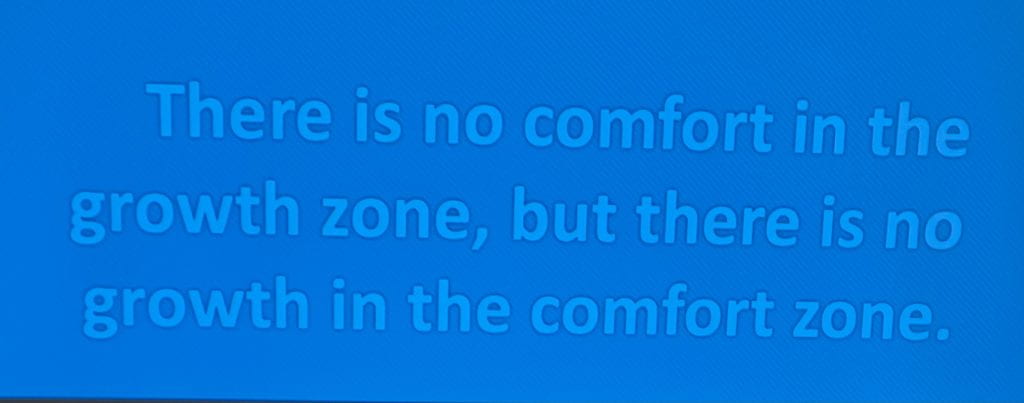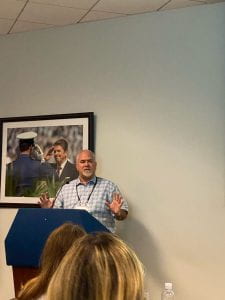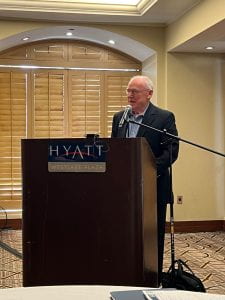In North Shore School District 112, we’re proud of our Journey of Continuous Improvement and Growth! In all areas, we remain “unfinished,” and we constantly seek to become better tomorrow than we are today!
In this blog post, I’m sharing a 49-minute audio from a recent July 3 on WVON with Rufus Williams interviewing me and Dr. Sonya Whitaker following a two-day Culturally Responsive Boot Camp professional development in Highland Park, attended by more than 90 staff members!
In addition to the audio file, I had Gen AI (generative artificial intelligence) summarize the audio into text for the blog post (below the audio you will see the Gen AI generated summary).
Comments are always welcome!
Learn more about our evolving journey at our website!

Summary of the audio interview from Generative AI
Continuing the Journey: Cultural Competency and Leadership in Education
#### Dr. Whitaker’s Approach
Dr. Whitaker reflected on the boot camp’s success, attributing it to the elimination of distractions and the focus on intentional, uninterrupted work. The boot camp raised consciousness among educators by addressing biases head-on. A key message that resonated with participants was, “If we have a brain, you have a bias.” This simple yet powerful statement helped level the playing field, allowing educators to acknowledge their biases and work through them collaboratively.
#### Culturally Responsive Teaching
One of the most significant outcomes of the boot camp was the movement toward culturally responsive teaching. Dr. Whitaker emphasized that understanding student culture is crucial for effective instruction and assessment. The training encouraged educators to reject negative societal narratives about the students they serve and to transform their teaching practices to be more inclusive and supportive.
## Embracing Equity and Cultural Competency in Education: Insights from Dr. Sonya Whitaker and Dr. Michael Lubelfeld
In a recent conversation on WVON, we had the pleasure of hosting two esteemed education leaders: Dr. Sonya Whitaker and Dr. Michael Lubelfeld. Dr. Whitaker, the Deputy Superintendent of Schools in a southern Chicago district, is also the National Policy Director for PUSH-Excel and an expert in cultural competency. Dr. Lubelfeld has served as a public school superintendent in Illinois since 2010 and currently leads the North Shore School District 112, which includes Highland Park and Highwood. Both guests shared their insights on the importance of cultural competency and equity in education, particularly in the context of recent events in Highland Park.
 ### Reflections on Tragedy and Community Resilience
### Reflections on Tragedy and Community Resilience
#### Dr. Michael Lubelfeld’s Perspective
Dr. Lubelfeld began by reflecting on the tragic shooting that occurred during the 4th of July parade in Highland Park two years ago. He described the event as a shattering of the community’s innocence, resulting in widespread emotion, anger, fear, anxiety, and confusion. In response, the school system, alongside city and county leadership, focused on trauma-informed healing, counseling, and fostering a celebration of compassion and love. Recognizing that members of their student body and staff were victims, they committed to taking care of their youth and supporting the community through this difficult time.
#### Community Mobilization
Dr. Lubelfeld acknowledged the efforts of the Highland Park community to organize, mobilize, and address the issues that arose from the tragedy. This collective response showcased the community’s resilience and ability to come together in the face of adversity. Despite the unplanned timing of the interview, he emphasized the importance of recognizing the anniversary of the event and the ongoing healing process.
Understanding Highland Park’s Demographics and Challenges
### A Diverse Community
Dr. Lubelfeld provided an overview of Highland Park, highlighting its demographic diversity. He explained that the district serves a varied population, with 66% of students being white, 25% Hispanic, 4% Asian, and a mix of other races. Notably, 20% of the students come from families who qualify for free or reduced lunch, indicating that one in five children in the district lives in poverty.
#### The Importance of Equity
The district’s focus on equity stems from its history of three school districts merging in 1993. Since then, the issue of ensuring equal educational opportunities for all students, regardless of their background, has been a priority. Dr. Lubelfeld emphasized that equity means providing every child with the same educational opportunities, which has been a driving force in the district’s initiatives.
### Cultural Competency: A Crucial Element in Education
#### Dr. Sonya Whitaker’s Insights
Dr. Whitaker shared her extensive experience in leadership roles across various districts, serving diverse student populations. She highlighted a significant challenge in the education profession: the majority of teachers are white females, which often leads to a lack of exposure to diverse perspectives. This homogeneity can result in educators isolating themselves and missing opportunities to counter negative societal narratives about black and brown people.

#### Raising Cultural Competencies
To address this issue, Dr. Whitaker emphasized the importance of raising cultural competencies among educators. She noted that leaders like Dr. Lubelfeld and supportive boards of education play a crucial role in this process. By increasing cultural competencies, educators can reject negative narratives and ensure that all students, including those experiencing poverty, receive the best possible education.
Implementing Cultural Competency in North Shore School District 112
#### Realizing the Board’s Vision
Dr. Lubelfeld expressed confidence that the boot camp would lead to significant improvements in student engagement, satisfaction, and equity. He highlighted the concept of collective efficacy, where educators believe in their abilities and in their students’ potential. The goal is to create a more equitable and effective educational experience for every child in the district.
#### The Decision to Bring in Dr. Whitaker
Dr. Lubelfeld recounted the steps taken by the North Shore School District 112 to address cultural competency. After becoming superintendent in 2018, one of the top priorities identified by the board and community was equity. The district conducted an equity audit in 2020 and, recognizing the need for expert guidance, hired a national consultant to train the board.
#### Accelerating the Work
In early 2024, the district faced several incidents of anti-Black racism against students, which prompted urgent action. Dr. Lubelfeld took the unprecedented step of sending a letter to the entire community and met with concerned parents who demanded more substantial efforts. This led to an accelerated, intensive plan involving immediate staff and administrator training, community meetings, and the development of a comprehensive approach to cultural competency.
#### The Boot Camp
One of the key initiatives was a boot camp led by Dr. Whitaker, which provided training to approximately 90 staff members. This program aimed to equip educators with the skills and knowledge needed to handle cultural competencies, address incidents of racism, and foster an inclusive and supportive environment for all students.
### Personal Reflections and Authentic Leadership
Dr. Whitaker’s approach to the boot camp involved sharing personal experiences that many white educators might not have been aware of. She discussed issues like colorism and the impact of these experiences on students. By revealing her own vulnerabilities and challenges, she fostered a safe environment where educators could learn and grow together.

#### Safe and Supportive Environment
Dr. Whitaker felt safe and supported by Dr. Lubelfeld and the staff at North Shore School District 112. This sense of safety allowed her to share candidly and authentically, which in turn encouraged educators to reflect on their own biases and assumptions. The presence of leaders, including the board president, reinforced the importance of this work and the district’s commitment to continuous improvement.
### Cultural Competency and Pedagogy: Moving to the Classroom Level
#### Recognizing Individual Experiences
Dr. Whitaker explained that the first step in achieving high rigor and high achievement in instruction is for teachers and administrators to understand their own cultural identities. During the training, many educators realized that while they may share the same skin color, their experiences were vastly different. This understanding is crucial for translating cultural knowledge into effective teaching practices.
#### The Legacy of Brown v. Board of Education
Dr. Whitaker highlighted the 70th anniversary of the Brown v. Board of Education ruling, which declared segregation in public schools unconstitutional. Despite this landmark decision, schools remain as segregated as ever, making the need for cultural competency training even more critical. She stressed the importance of acknowledging and addressing institutional racism within the education system.
### Culturally Responsive Pedagogy: The Next Step
#### From Knowledge to Action
Dr. Whitaker emphasized that cultural competency is about understanding different cultures, while culturally responsive pedagogy involves applying that knowledge in the classroom. Educators must learn to recognize the unique cultural strengths of their students and use those strengths to enhance learning. This approach helps achieve the board’s vision of high rigor and high expectations for every student.
#### Building a National Model
Dr. Whitaker expressed confidence that the teachers and staff at North Shore School District 112 have the potential to serve as a national model in cultural competency. The feedback from the boot camp participants indicates a readiness to transform teaching and learning practices. The next focus is on how to implement these changes in the classroom, ensuring that educators can effectively support and engage all students.
### Conclusion: The Path Forward
As Dr. Whitaker and Dr. Lubelfeld continue their efforts to enhance cultural competency in education, their work serves as a model for other districts facing similar challenges. The boot camp experience at North Shore School District 112 demonstrates the power of intentional, focused efforts to create a more inclusive and equitable educational environment for all students.
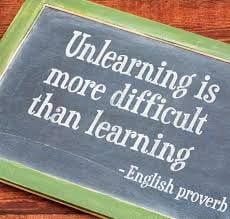























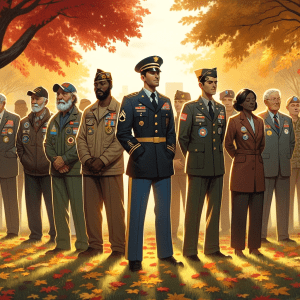
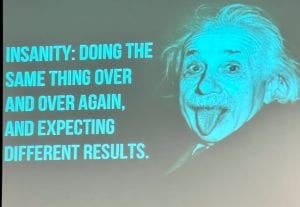 In this fourth of four blog posts illustrating forty years of educational reforms in the United States since the publication of A Nation at Risk in 1983, I am proud to reinforce some of what I knew, know, and plan to do! The report gave a start to decades of educational reforms that helped to cause a national obsession with standardized test results. Some of the momentum has been great in terms of causing an awareness of what it means for a school system to educate each child every day — some of the momentum has been horrible in terms of causing people who score “less than proficient” to be looked upon as illiterate.
In this fourth of four blog posts illustrating forty years of educational reforms in the United States since the publication of A Nation at Risk in 1983, I am proud to reinforce some of what I knew, know, and plan to do! The report gave a start to decades of educational reforms that helped to cause a national obsession with standardized test results. Some of the momentum has been great in terms of causing an awareness of what it means for a school system to educate each child every day — some of the momentum has been horrible in terms of causing people who score “less than proficient” to be looked upon as illiterate.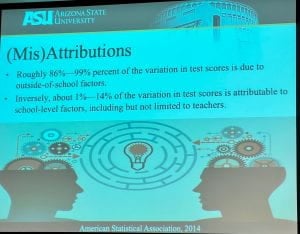
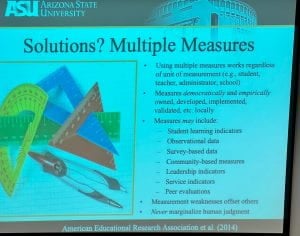
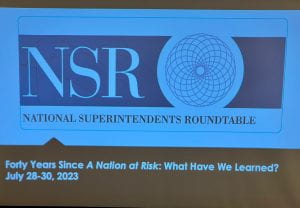 be less than and more than. It is time to develop a more realistic accountability system that means more than “average” or “beyond or below”.
be less than and more than. It is time to develop a more realistic accountability system that means more than “average” or “beyond or below”.